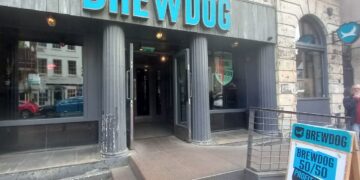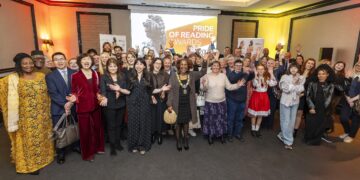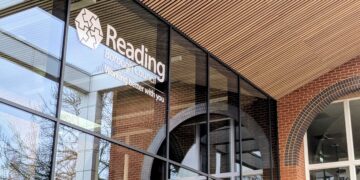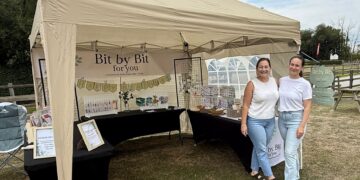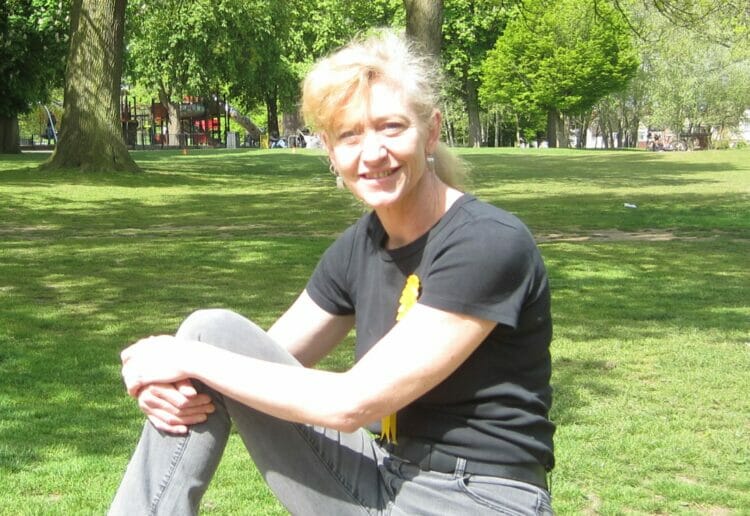THE SMALLEST party on Reading Borough Council, with just three seats, is the Liberal Democrats, all in Tilehurst. But their size doesn’t mean they don’t have big ideas for the town.
Leader Meri O’Connell says the party is active, and hoping to make gains on May 4.
Last year, they saw Anne Thompson and James Moore join the council chamber; Anne is up for re-election this year.
“We were very, very pleased – it was a gain election, not one where we lost,” she says. “Cllr Thompson is up for re-election this year, she’s had a brilliant first year and been an outstanding councillor. She hit the deck running and has not stopped.
“As someone who has been on the council for a few years, her energy and enthusiasm has been very refreshing and invigorating. It’s made me look at my role as councillor with fresh enthusiasm, so we want her voted back in, and we’d like to build our vote share right across the Reading area.”
Meri recalls being the only Lib Dem councillor in the chamber just a few years ago, so she’s pleased to be part of a group again. She says her party aim to be a “critical friends” to the ruling Labour group.
“We scrutinise the decisions they make, we talk to the public and the press, and try and highlight where we think they could do better and challenge where they get it wrong,” she says. “I would like to see politics that congratulates when people are doing well, even when they’re not in the same party.
“You will see, on Reading Borough Council, Lib Dems agreeing with Labour, the Greens, and occasionally, the Conservatives when they get it right.”
But the first line of the Lib Dem manifesto says they think Reading suffers from a lack of vision and leadership. How are the two views compatible?
“As a critical friend, I would like the council to raise their ambition,” Meri says. “I will praise some things they are doing, but we could do more. An example is the climate emergency, we’ve made great strides, but we should be doing more, and faster because I just don’t believe there’s the time left to debate these issues in the council chamber – we need to be taking the action right now in our town.”
The Lib Dems are also calling on NatWest to reverse the decision to close their Tilehurst branch. As the decision is probably a done deal, surely this is a waste of time and effort?
Meri says while she thinks the branch will close, Tilehurst needs an alternative solution.
“We’re aiming for the next available option, which is to create a banking hub in Tilehurst, or as close to it as possible, because we recognise that if you go into town your banking needs are served. It’s really from Tilehurst out towards West Berkshire where there is a real absence of places to do doing once NatWest shuts.
“We’re trying to get the Link organisation – a collaborative organisation of banks – to consider us for a hub. It wouldn’t be run by one particular bank, but people with different banks will be able to do their physical banking services there.”
The party is also pushing for more support for people keen to set up Neighbourhood Action Groups, utilising support from “excellent” council officers.
“We tried to form one in my own area and there was a lot of enthusiasm, but we didn’t really know what we were doing, we didn’t understand what our remit was and where we could take it,” Meri recalls. “It was incredibly difficult to get an officer to come and visit us and guide us through it.”
Keeping and maintaining libraries is another key pledge, and the reason isn’t just for reading.
“Librarians have a wealth of skills and talents, when they close libraries, we lose those skills as well as they buildings they were housed in,” Meri says. “We have to hold the line and I give Reading Borough Council credit for still having a library service when so many areas have had to drop this.
“The benefits go beyond just book lending. These are community hubs, they reduce loneliness by giving people somewhere to go, they are information sources. If you are person who cannot afford WiFi or computer hardware, you can use library services.
“It’s very hard to put a financial value on these things, and I don’t think we should even try. What they serve within a community is too important to allow central government to continue to erode by reducing funding.”
The mayor of London’s plan to introduce an ultra-low emissions zone has come under a lot of criticism from some quarters, why do they want to see one brought in in Reading?
“We know there is an enormous amount of pollution, we know we should minimise journeys we take, preferably not doing short journeys in a car, but saving it for longer journeys,” she says. “We would like to see more charging points to help people switch from petrol or diesel cars to electric.
“Reading does sit at the bottom of the Thames Valley, and we have high levels of pollution in our area. It has negative effects on children and adult health, so we feel we need to really come down on this.
“We would like the ultra-low emissions scheme properly discussed – we don’t believe in making decisions for the people of Reading, we want to propose ideas, discuss them and have the people’s views heard. We wouldn’t put forward something the majority of residents were opposed to, we would want to consult on it, look at the evidence and let people have a say on it.”
Meri also wants to see action on roadworks, calling for a system similar to that in Vancouver where utility firms have to rent road space, with higher fees during peak times. This means works are undertaken quickly and overnight in many cases, reducing disruption to motorists.
“We should put our heads together and come up with a better way of doing things,” she says.
She also has sympathy with Labour for having had to increase council tax by the maximum 4.99%, saying the blame should solely be with the government for its systematic period of cuts.
“We are now down to the bare bones, so to maintain services we had to raise it. It’s still not the rate of inflation, but it does come down to funding from central government – putting it mildly, it really irritates me we have to bid for certain funding streams for specific projects, and they are time limited.
“It’s really disruptive to any kind of forward planning when a funding stream is for two or three years maximum.
“It comes down to this Conservative government not giving local councils, regardless of colour, the funds they need to do the things that have to be done. They will say that it’s the council’s choice as to what they do, but there aren’t many choices left to make – there is nothing left to cut, there’s no excess fat to be trimmed off. It’s down to the bone now.”
And staying with finance, Meri is aware of the cost-of-living crisis and the issues that it raises for Reading.
“I meet residents who are counting every single penny,” she says. “That is something that needs to be tackled at a national level.
“Locally, we need to keep supporting, offering community groups as much as possible.”
Glass recycling from the doorstep is another manifesto pledge. While the government is going to publish its plans after the local election, Meri is keen to see action now: “Let’s be ahead of the curve”.
She wants Reading to grasp a greener vision, increasing the tree canopy, encouraging biodiversity despite being in an urban area.
“It’s not just good for the planet, it’s good for people’s mental health,” Meri says. “There’s been countless studies that show that people who get out in greenery, who see greenery, who live on tree-lined streets, have better mental health and better house prices. It’s a win from an economic point of views and from a social point of view. It’s a win from a world point of view.
“That would be front and foremost for us, and a huge, overarching part of our vision for Reading.”
As to why people should vote Lib Dem on Thursday, May 4, Meri says: “We are a party that believes in evidence, we should look at the facts and make decisions based on them. We are willing to change our minds if the facts change.
“We’re a party that believes in working with people from all different opinions, all different branches of the political spectrum.
“We’d like to see a kinder, more consensual politics where people don’t drown each other out, but listen to the good points that people bring to the table and come to conclusions that are perhaps not entirely what we want, but are best for the people of Reading.
“We believe in localism, in giving power back to communities.
“We do not tell people what they should think or what they should do, but consult with them on it, give them the information and let them make informed choices.”


